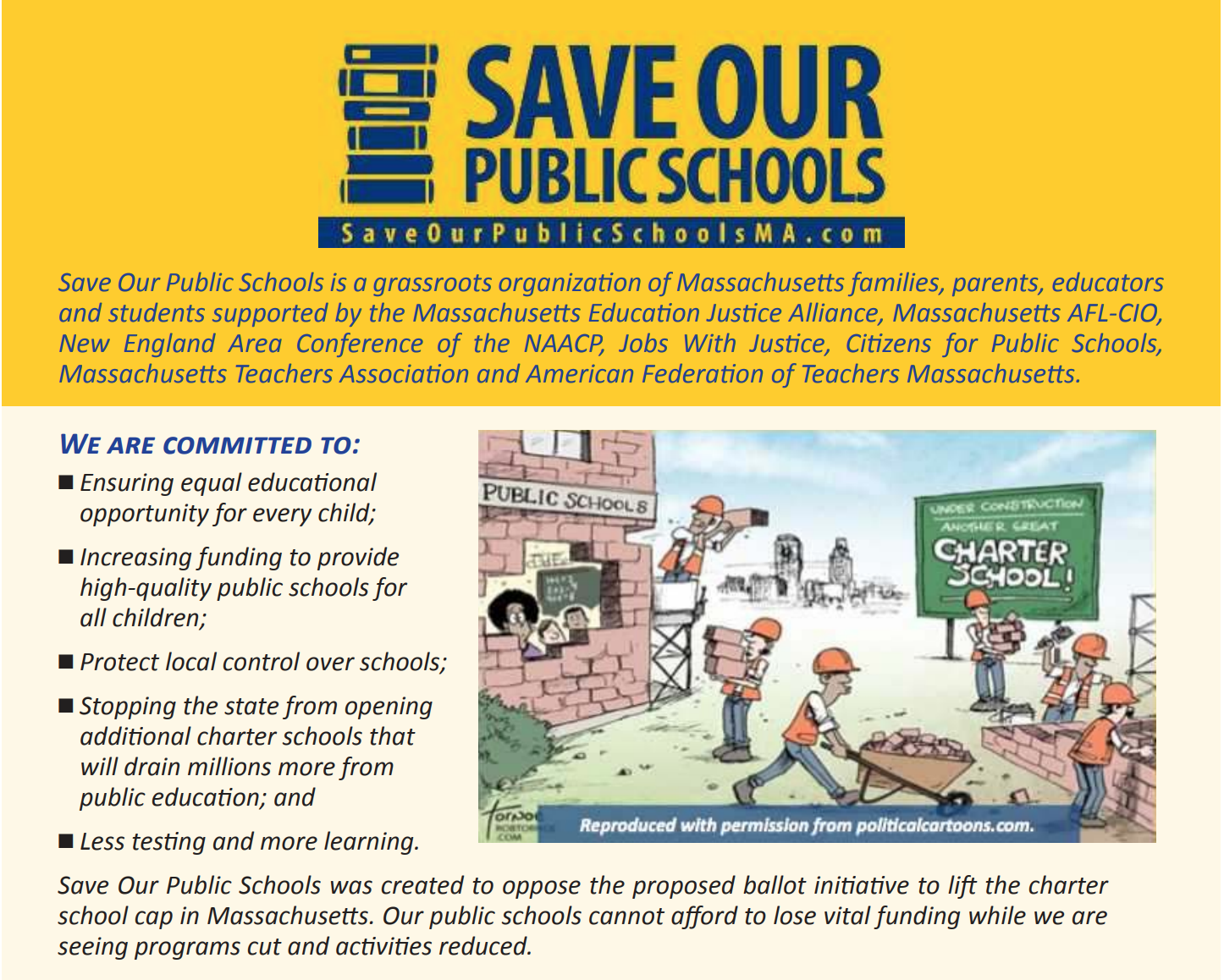Grassroots Organizing Around School Choice – Nationally
Nationally, an enormous array of parties have taken interest in organizing around school choice. Because school choice is a market-based approach, parents, students and capitalists alike are taking a stance on the issue.
Because school choice is such a broad and encompassing subject, it is challenging to generalize which populations are in favor of choice as a concept. Generally, however, there are two schools of thought: pro-school choice advocates a) seek market solutions to improving the education system (through competition) and b) value choice as an inherent right or ideal. Anti-choice advocates may still be in favor of magnet schools, which are in the public system but have particulate areas of academic focus, and are more generally concerned with fixing the public school system by ensuring all education funding goes towards the general system. Though the approaches are different, organizers on both sides seek to address that schools are disproportionately failing poor students and students of color.
Proponents of school choice organize lobbying efforts to urge states to adopt voucher programs, increase numbers of charter schools, create educational savings account programs and implement school choice tax credits or deductions. Advocacy for school choice is often backed by philanthrocapitalism, for-profit organizations, private schools, and charter management firms and therefore seldom grassroots. Because school choice is a market-based solution, wealthy capitalists often favor it over the traditional public model. Proponents of school choice fund research and develop powerful marketing campaigns that contribute to their ability to effectively lobby. Check out EdChoice’s flashy video below as an example. Ed Choice was originally funded by economist Milton Friedman’s foundation.
Source: https://www.edchoice.org/school-choice/what-is-school-choice/
Opponents of school choice are often parents and community members generally concerned with the overall public education system. Often these individuals ideologically oppose privatization of education. Sometimes they are weary of charter school approaches. Opponents of school choice often engage in truly grassroots efforts. Tactics include educating parents, canvassing and phone banking about legislative and ballot issues, assisting in election campaigns, rallying and educating through social media.
Grassroots Organizing Around School Choice – Boston

https://btu.org/wp-content/uploads/2016/05/SOPS-Campaign-Highlights.pdf
The recent debate about school choice in Boston has generally centered around charter schools. This is in part because of a longstanding cap on the number of charter schools in Massachusetts (Larkin, 2018). In 2015, Governor Charlie Baker proposed a bill to lift the cap and add 12 charter schools each year (Larkin, 2018). The legislature decided against pushing it forward and instead put the question of lifting the cap on the 2016 ballot (Larkin, 2018). Voters opted to keep the cap by a 24-point margin (Larkin, 2018). In April 2018, the Massachusetts Supreme Court ruled that the cap was legal; the lawsuit argued that the cap denied students the opportunity to a quality education, but the court held that the state hadn’t failed its “constitutionally prescribed duty to educate” because of the cap (Andersen, 2018).
Boston grassroots organizations opposing charters have faced the immense challenge of fighting these battles against well-funded school choice advocates. The Save Our Public Schools campaign rallied, educated, and canvassed in order to defeat the Question 2 ballot initiative in 2016 to expand charter schools. Charter supporters spent $26 million on their campaign (Massachusetts Education Justice Alliance, 2018). The recent Massachusetts Supreme Court decision slowed the momentum on that approach to increasing school choice, but efforts towards privatization persist.
In the wake of the ruling, Tim Nicolette, executive director of the Massachusetts Charter School Association, said that charter advocates will refocus efforts on generating public support by working with school districts in which there is still room for charter expansion under the cap (Wade, 2018).
The existing school choice landscape in Boston leaves a lot of work for those who favor traditional public schools because of the number of charter schools already running. Because they’re funded through the same pool of tax dollars as traditional schools, and state laws require public schools to pay for the education of a student who transfers to a charter, money continues to be siphoned away from traditional schools (Wade, 2018). Meanwhile, the waiting list for students to attend charters grow (Wade, 2018).
